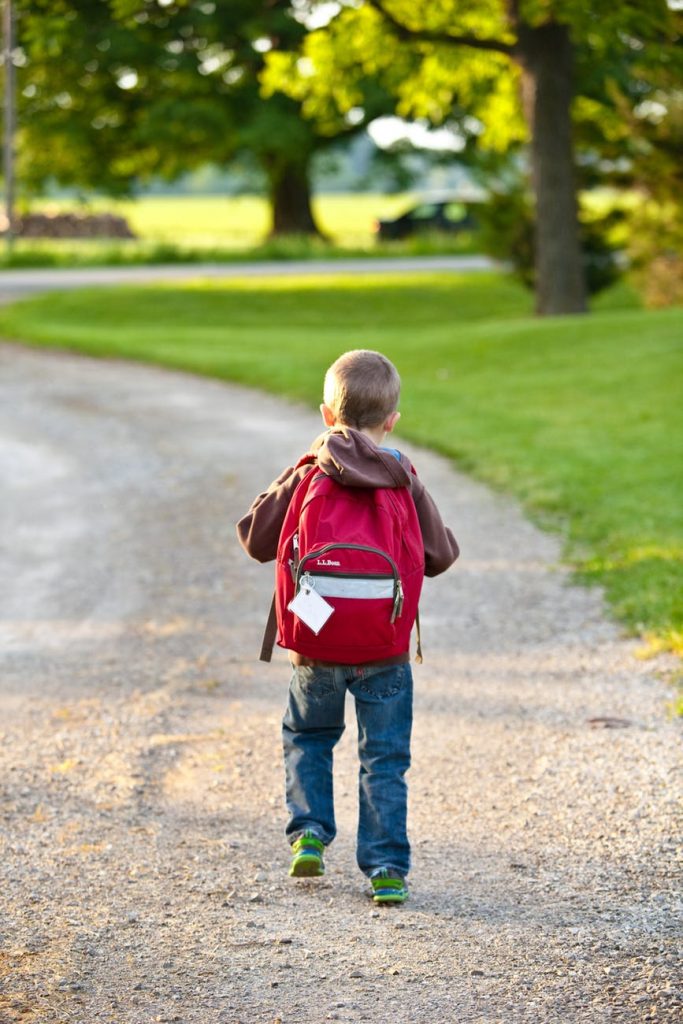Anxiety over school shootings in America has become a collective fear for children and adults alike. The recent epidemic of school shootings and threats of school-based violence are shocking events that may prompt strong emotional reactions. When such incidents occur, it is important that parents and caregivers are equipped with information in order to appropriately respond and meet the safety and emotional needs of their children.

Anxiety can be thought of as the body’s internal alarm system. In order to keep the self safe, it is important for this alarm to sound when a threat is nearby. Sometimes, the alarm system may perceive danger and sound the alarm too readily when there may not be any danger at all. Intense societal discussion and ongoing, vivid media coverage of school shootings and violence prime the internal alarm system to be constantly alert for such danger. Exposure to the possibility of violence at school may leave students feeling less safe and may trigger the alarm system, resulting in increased anxiety.
If you notice your child is experiencing increased symptoms of anxiety, such as excessive worry, restlessness, nausea, racing/unwanted thoughts, hypervigilance, irritability, or changes in eating and sleeping habits, it is important that you have a plan in order to promptly respond:
Take a Media Break: Take a family break from social media and media coverage that will instigate repeated exposure to threatening imagery. Very young children should not see or hear any violence-related media messages at all. Use this time to focus the family’s attention on healthy and proactive ways to respond to anxious feelings.
Talk to Your Children: Parents often worry that they will scare their children more when discussing violence. Children have often already had ample exposure to the subject from peers and social media, and bringing it up gives children the opportunity to safely discuss their fears and ask questions with trusted adults. Facilitating an age-appropriate conversation, and gently correcting possible misinformation, may help to alleviate anxious feelings altogether. Avoiding difficult topics will add to fears and confusion, potentially making an already scary topic all the more frightening.
Similarly, it is important to talk with your children about when to seek help for others. Remind children to tell an adult if they feel a classmate is in need of emotional support. If another student says, posts, or writes something scary, the same approach is necessary: immediately tell an adult.
Stick to the Routine: Frequent exposure to chaotic and unpredictable violence in the media alerts the body’s internal alarm system, causing anxiety. It is important to counter this chaos and unpredictability with predictable structure. The first place to maintain predictable structure is in your child’s and family routine. Engaging in a consistent, predictable, and safe routine can calm the alarm system, assuring it that there is no present threat. Ensure that children are sleeping, eating, and engaging in activities as they normally would. If the usual routine is difficult for your child to manage, do not push them, but allow space to revisit any feelings that may be coming up, and consider consulting with a mental health professional for additional support.
Be Observant: Notice how your child is functioning in the days and weeks after exposure to violence. Some children may not be able to express their emotions verbally, but you may notice changes in their behavior, school performance, peer relationships, or sleeping and eating habits. You may also notice an increase in stomachaches and headaches, nightmares, or excessive worry. All of these presentations may be an indicator of their level of anxiety. For some children, these symptoms will subside with consistent safety and support over time. Other children, particularly those with pre-existing symptoms of anxiety or depression, past exposure to traumatic stress, special needs, or who struggle with other mental health diagnoses, may require additional supports. If you are concerned or notice your child’s discomfort is interfering with their day-to-day functioning, it is important that you immediately connect with a mental health professional to support your child’s emotional and safety needs, and to prevent anxiety symptoms from worsening.

Rebecca Nelson is a Provisional Mental Health Counselor Licensee with over five years of experience working with a myriad of mental health issues and psychiatric disorders in a variety of settings. Her specialties include trauma-related mood and anxiety disorders, relational issues, and difficult life transitions. She particularly enjoys working with children, teenagers, adults, and families with an array of emotional, behavioral and mental health needs including: depression, anxiety, post-traumatic stress disorder, adjustment disorders, mood disorders, family conflict/communication and parental support.